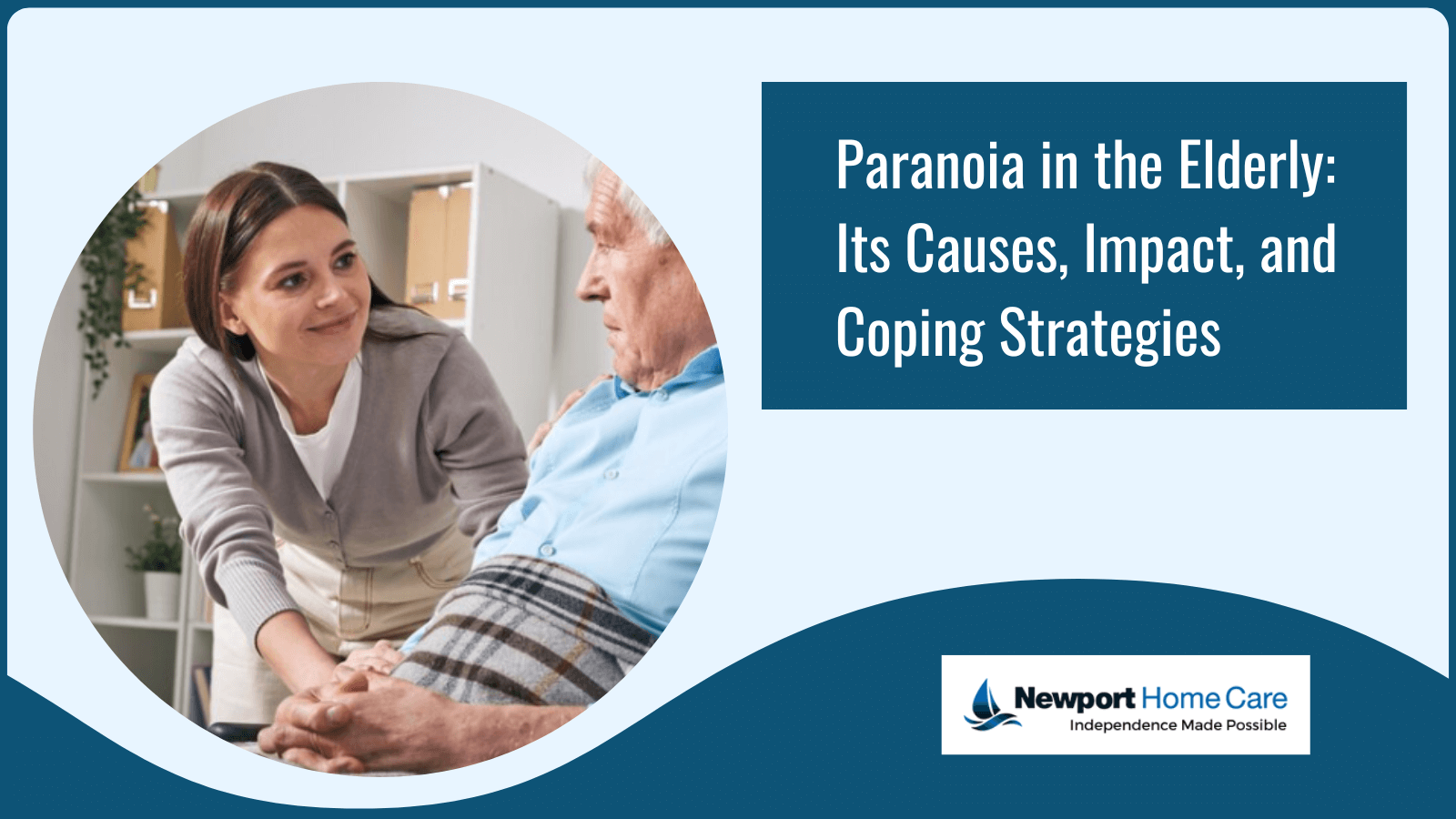


Paranoia is a cognitive condition that drives you to have unreasonable suspicion or distrust of others. People with paranoia may believe they have been targeted or that someone is trying to get them. They may perceive a threat of bodily injury even when not in danger. This condition is quite common in elderly people. Research suggests that among 1420 older adults, more than 12% suffer from paranoia.
In this blog, we will learn about paranoia in mature adults, its causes, impact, coping strategies, and how in-home care services can help.
Paranoia in older people is a cause for concern. This condition belongs to a category of mental health problems known as "psychosis." An elderly loved one suffering from it can have feelings that someone is stalking them, stealing from them, or sneaking into their home at night.
Paranoia in the older generation can also be a sign of other mental disorders that may need immediate treatment and care. Thus, it's essential to recognize this condition, as if left unchecked, it can lead to injury for your elderly loved one or someone else.
Your elderly loved ones can suffer from unreasonable worry, paranoid conduct, or chronic terror due to various medical problems. These may include:
Alzheimer's disease: Alzheimer's disease is an irreversible, degenerative brain condition that gradually erodes memory and cognitive abilities, eventually resulting in the inability to perform even the most basic activities. This disease typically affects the aging population .
Depression: Your elderly loved ones can suffer from paranoia if they feel depressed for a long time. This can occur due to social factors like isolation, loneliness, and changes in their social roles that heavily affect them psychologically.
Brain damage induced by a stroke or accident: Damage to certain parts of the brain caused by injury or interrupted blood flow can lead to illogical ideas and actions. This is especially true for seniors, who are more susceptible to injury.
Cognitive impairment: This is a condition in which elderly loved ones struggle to recall, learn new things, concentrate, or make important decisions in their daily lives. This can lead them to become paranoid.
Delirium: This is a relatively common "worse-than-usual" mental condition, which is frequently caused by the stress caused by past traumas and unresolved conflicts. This can lead your elderly loved one to feel worried about a variety of things.
Diseases: Many physical health conditions can also impair your elderly loved one's brain function. These include electrolyte issues such as aberrant sodium, potassium, calcium, or magnesium levels in the blood, vitamin B12 or folate deficiency, thyroid issues, severe liver or kidney malfunction, infections, and neurological illnesses, which can all lead to them having paranoia.
There are various signs and symptoms of paranoia. Here are some of the most common signs of paranoia in your elderly loved ones:
Following are some of the easy-to-follow strategies and supportive interventions you can opt for if your elderly loved ones are experiencing symptoms of paranoia.
Create a Safe and Supportive Environment: Paranoid delusions are pretty natural for individuals who experience them, particularly the elderly with dementia. Ensure that you are supportive of them, and create a space for your elderly loved ones suffering from paranoia where they don't feel anxious or threatened.
Communicate with Them: You must communicate with your loved ones suffering from paranoia. Ask them what makes them anxious, sad, or feel threatened. Remember to always be patient with them when discussing their worries.
Collaborate with Others: Ask for assistance. Ask your family for help, and seek guidance from other caregivers or medical professionals who look after people suffering from paranoia. They'll understand what you're going through and may have ideas and recommendations for your specific scenario.
Don't Escalate Things: Try not to overreact during a quarrel with your elderly loved one with paranoia, especially if they accuse you of anything false. Any dispute may lead your elderly loved one to get more anxious or disturbed.
Getting professional advice can be quite beneficial if your elderly loved ones are suffering from paranoia. Here are some practical tips for caregivers and family members with which they can provide the best care to seniors suffering from paranoia.
Lastly, remember that paranoia in the older generation can significantly impact. So, you as a caregiver must know what this condition is, its causes, and the impact it can have on their lives. Only then can you take proper care of the seniors with paranoia and make them feel happy and safe.
If you are searching for specialized home care services for your elderly loved ones suffering from paranoia, contact Newport Home Care. From personal care and hygiene assistance to daily activities and emotional support, our caregivers provide various services to transform your loved ones' standard of living and well-being. Contact us today to get a skilled and compassionate caregiver for your loved one.